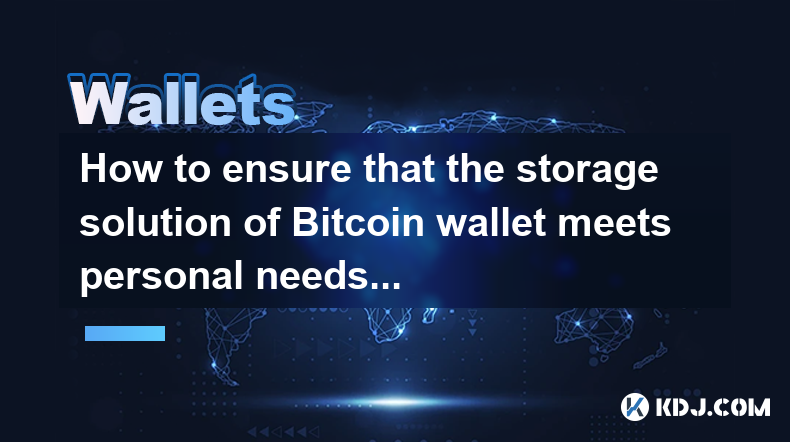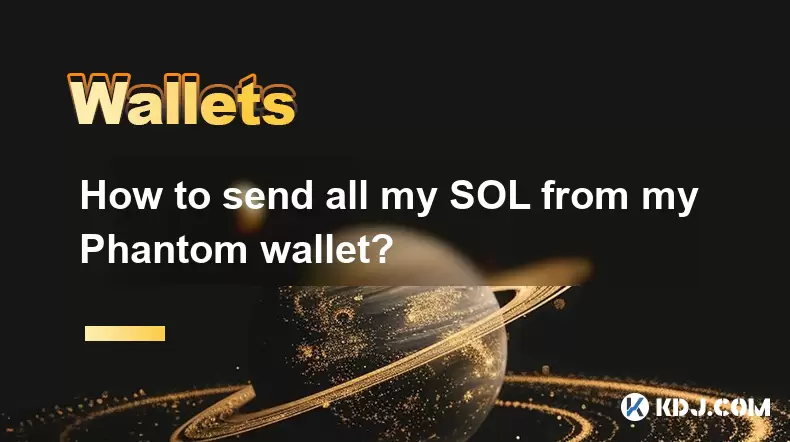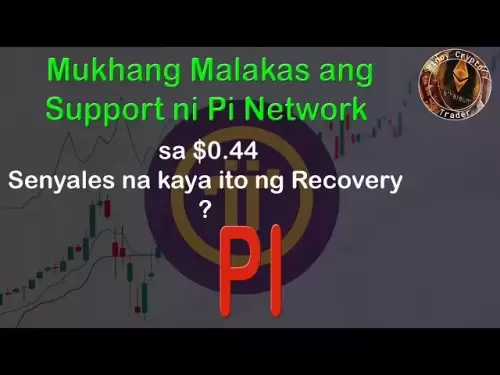-
 Bitcoin
Bitcoin $108,778.4882
0.68% -
 Ethereum
Ethereum $2,563.3783
2.01% -
 Tether USDt
Tether USDt $1.0001
-0.01% -
 XRP
XRP $2.2881
0.77% -
 BNB
BNB $662.2819
1.12% -
 Solana
Solana $152.2652
3.21% -
 USDC
USDC $0.9999
-0.01% -
 TRON
TRON $0.2873
0.90% -
 Dogecoin
Dogecoin $0.1715
4.20% -
 Cardano
Cardano $0.5868
1.50% -
 Hyperliquid
Hyperliquid $39.6796
1.73% -
 Sui
Sui $2.9136
0.85% -
 Bitcoin Cash
Bitcoin Cash $495.4980
1.77% -
 Chainlink
Chainlink $13.5765
3.06% -
 UNUS SED LEO
UNUS SED LEO $9.0753
0.53% -
 Stellar
Stellar $0.2503
3.73% -
 Avalanche
Avalanche $18.2012
1.86% -
 Shiba Inu
Shiba Inu $0.0...01174
1.83% -
 Toncoin
Toncoin $2.7998
-6.08% -
 Hedera
Hedera $0.1596
3.89% -
 Litecoin
Litecoin $87.3119
0.20% -
 Monero
Monero $319.5596
1.08% -
 Polkadot
Polkadot $3.3887
0.93% -
 Dai
Dai $0.9999
-0.01% -
 Ethena USDe
Ethena USDe $1.0001
-0.01% -
 Bitget Token
Bitget Token $4.3294
-1.36% -
 Uniswap
Uniswap $7.3898
1.60% -
 Aave
Aave $287.5336
5.76% -
 Pepe
Pepe $0.0...01005
3.24% -
 Pi
Pi $0.4588
1.90%
How to ensure that the storage solution of Bitcoin wallet meets personal needs?
Secure Bitcoin storage depends on your needs: high-value holdings warrant cold storage (hardware wallets offer superior security), while frequent traders might prefer the convenience of hot wallets, accepting higher risk.
Mar 22, 2025 at 06:42 pm

How to Ensure That the Storage Solution of Your Bitcoin Wallet Meets Your Personal Needs?
Choosing the right Bitcoin wallet storage solution is crucial for securing your digital assets. The ideal solution depends heavily on your individual needs, risk tolerance, and technical expertise. This article explores various options and helps you determine which best suits your circumstances.
Understanding Your Needs: A Crucial First Step
Before diving into specific storage methods, honestly assess your needs. Consider how much Bitcoin you own. Are we talking a few hundred dollars, or a significant investment? Your holdings directly influence your security requirements. Also, consider your technical proficiency. Are you comfortable navigating complex software or do you prefer user-friendly interfaces? Finally, how frequently do you plan to transact with your Bitcoin? Regular traders need readily accessible funds, while long-term holders prioritize security above speed.
Exploring Bitcoin Wallet Storage Options
Several storage options exist, each with its own strengths and weaknesses. Understanding these differences is vital for making an informed choice.
- Hot Wallets: These are connected to the internet, offering quick access to your funds. However, they are more vulnerable to hacking. Examples include web wallets, mobile wallets, and desktop wallets. Convenience comes at the cost of increased risk.
- Cold Wallets: These are offline storage devices, significantly reducing the risk of hacking. They provide the highest level of security but require more technical knowledge and are less convenient for frequent transactions. Hardware wallets are the most popular type of cold wallet. Paper wallets, while secure, are susceptible to physical damage and loss.
- Custodial Wallets: These wallets are managed by a third party, offering convenience and often additional features. However, you relinquish control over your private keys, increasing reliance on the custodian's security practices. This introduces a counterparty risk.
- Non-Custodial Wallets: You retain complete control over your private keys. This is the most secure option but demands responsibility and understanding of cryptographic principles.
Factors to Consider When Choosing a Storage Solution
Several factors influence the suitability of a storage solution:
- Security: This is paramount. Consider the wallet's reputation, security features (e.g., two-factor authentication), and the provider's track record. For cold storage, physical security is equally important.
- User-Friendliness: The interface should be intuitive and easy to navigate. Complex wallets can be challenging for less tech-savvy users. Choose a wallet that matches your comfort level.
- Transaction Speed: Hot wallets offer faster transactions, while cold wallets involve a more involved process. Consider your transaction frequency.
- Fees: Some wallets charge transaction fees, while others do not. Factor these costs into your decision.
- Features: Look for additional features like multi-signature support, which enhances security.
Detailed Examination of Specific Wallet Types
Let's delve deeper into the specifics of each wallet type.
Hardware Wallets: These are physical devices that store your private keys offline. They offer a high degree of security but can be more expensive than software wallets. Leading examples include Ledger and Trezor. Their robust security features make them ideal for substantial Bitcoin holdings.
Software Wallets: These are applications installed on your computer or mobile device. They offer convenience but are vulnerable to malware and hacking if not properly secured. Desktop wallets like Electrum and mobile wallets like BlueWallet offer varying levels of security and user-friendliness.
Paper Wallets: These are printed pieces of paper containing your public and private keys. They are highly secure if stored safely, but are susceptible to loss or damage. They are a low-cost option but require careful handling.
Web Wallets: These are online wallets accessed through a browser. They are convenient but less secure than other options, making them suitable only for small amounts of Bitcoin. Use only reputable providers.
Step-by-Step Guide to Choosing a Bitcoin Wallet
Choosing the right wallet involves a methodical approach. Follow these steps:
- Assess your needs: Determine your technical skills, Bitcoin holdings, and transaction frequency.
- Research wallet options: Explore various wallets and compare their features and security levels.
- Read reviews: Check user reviews and ratings to gauge the reliability and user experience.
- Test the wallet: Use a testnet to try out the wallet before using it with real Bitcoin.
- Implement strong security practices: Use strong passwords, enable two-factor authentication, and keep your private keys safe.
Common Questions and Answers
Q: What is the safest way to store Bitcoin?
A: Cold storage, particularly using a reputable hardware wallet, is generally considered the safest method.
Q: Are hot wallets completely insecure?
A: No, hot wallets can be secure if used responsibly with strong security practices. However, they inherently carry a higher risk than cold wallets.
Q: How do I choose between a hardware and software wallet?
A: If security is your top priority and you have substantial holdings, a hardware wallet is recommended. If convenience is more important and you have smaller amounts, a software wallet might suffice.
Q: What should I do if I lose my private keys?
A: Losing your private keys means losing access to your Bitcoin. There's no recovery mechanism. Always back up your keys securely.
Q: Are custodial wallets safe?
A: Custodial wallets rely on a third party. While they offer convenience, the security depends entirely on the custodian's practices and is subject to their risk. You lose direct control of your private keys.
Disclaimer:info@kdj.com
The information provided is not trading advice. kdj.com does not assume any responsibility for any investments made based on the information provided in this article. Cryptocurrencies are highly volatile and it is highly recommended that you invest with caution after thorough research!
If you believe that the content used on this website infringes your copyright, please contact us immediately (info@kdj.com) and we will delete it promptly.
- Bitcoin Wallet Hack? Coinbase Exec Sounds the Alarm on $8B Whale Movement
- 2025-07-07 18:30:12
- Mercado Bitcoin, Tokenization, and XRP Ledger: A Latin American Power Play
- 2025-07-07 18:30:12
- Ripple's RLUSD: Revolutionizing Cross-Margin Trading for Institutions
- 2025-07-07 18:35:12
- Babylon, Bitcoin, and the EVM Mainnet: A New Era for BTCFi?
- 2025-07-07 16:30:11
- Queen Elizabeth Coin Sells for £31,000: A Royal Fortune in Your Pocket?
- 2025-07-07 16:30:11
- XRP Price Check: Will Resistance Trigger a July Drop?
- 2025-07-07 17:10:12
Related knowledge

How to cancel a pending transaction in Phantom wallet?
Jul 03,2025 at 07:21pm
Understanding Pending Transactions in Phantom WalletA pending transaction in the Phantom wallet occurs when a user initiates a transfer or interaction with the Solana blockchain, but it hasn't yet been confirmed by the network. This can happen due to various reasons such as low transaction fees, network congestion, or incorrect gas settings. It's import...

How to see the estimated value of my tokens in Phantom wallet?
Jul 04,2025 at 12:21am
What is Phantom Wallet?Phantom wallet is one of the most popular cryptocurrency wallets designed for the Solana blockchain. It allows users to store, send, receive, and manage various tokens built on Solana, including SPL tokens and NFTs. The wallet offers a user-friendly interface, making it accessible for both beginners and advanced users in the crypt...

How to lock my Phantom wallet extension?
Jul 03,2025 at 11:14am
What Is the Phantom Wallet and Why Lock It?The Phantom wallet is a popular non-custodial cryptocurrency wallet designed for interacting with the Solana blockchain. Supporting both browser extensions and mobile apps, Phantom allows users to store, send, receive, and stake SOL tokens, as well as interact with decentralized applications (dApps). Securing y...

Does Phantom wallet offer two-factor authentication (2FA)?
Jul 03,2025 at 09:00am
Understanding Phantom Wallet and Its Security FeaturesPhantom wallet is a widely used non-custodial cryptocurrency wallet that supports the Solana blockchain. It allows users to store, send, receive, and interact with decentralized applications (dApps) seamlessly. As security is a top priority for any crypto wallet user, security features like two-facto...

How to send all my SOL from my Phantom wallet?
Jul 06,2025 at 10:00am
Preparing to Send SOL from Your Phantom WalletBefore initiating any transaction, it is crucial to ensure that your Phantom wallet is fully set up and connected to the correct network. Phantom supports multiple networks, but for sending SOL, you must be on the Solana blockchain. Confirm this by checking the network indicator in the top-right corner of th...

What is "rent" on Solana and how does it affect my Phantom wallet?
Jul 02,2025 at 08:35pm
Understanding 'Rent' on SolanaIn the context of Solana, the term 'rent' refers to a storage fee that users pay for maintaining data on the blockchain. Unlike Ethereum, where storage costs are paid once via gas fees during contract deployment, Solana implements a recurring cost model to ensure efficient usage of network resources. This means that any acc...

How to cancel a pending transaction in Phantom wallet?
Jul 03,2025 at 07:21pm
Understanding Pending Transactions in Phantom WalletA pending transaction in the Phantom wallet occurs when a user initiates a transfer or interaction with the Solana blockchain, but it hasn't yet been confirmed by the network. This can happen due to various reasons such as low transaction fees, network congestion, or incorrect gas settings. It's import...

How to see the estimated value of my tokens in Phantom wallet?
Jul 04,2025 at 12:21am
What is Phantom Wallet?Phantom wallet is one of the most popular cryptocurrency wallets designed for the Solana blockchain. It allows users to store, send, receive, and manage various tokens built on Solana, including SPL tokens and NFTs. The wallet offers a user-friendly interface, making it accessible for both beginners and advanced users in the crypt...

How to lock my Phantom wallet extension?
Jul 03,2025 at 11:14am
What Is the Phantom Wallet and Why Lock It?The Phantom wallet is a popular non-custodial cryptocurrency wallet designed for interacting with the Solana blockchain. Supporting both browser extensions and mobile apps, Phantom allows users to store, send, receive, and stake SOL tokens, as well as interact with decentralized applications (dApps). Securing y...

Does Phantom wallet offer two-factor authentication (2FA)?
Jul 03,2025 at 09:00am
Understanding Phantom Wallet and Its Security FeaturesPhantom wallet is a widely used non-custodial cryptocurrency wallet that supports the Solana blockchain. It allows users to store, send, receive, and interact with decentralized applications (dApps) seamlessly. As security is a top priority for any crypto wallet user, security features like two-facto...

How to send all my SOL from my Phantom wallet?
Jul 06,2025 at 10:00am
Preparing to Send SOL from Your Phantom WalletBefore initiating any transaction, it is crucial to ensure that your Phantom wallet is fully set up and connected to the correct network. Phantom supports multiple networks, but for sending SOL, you must be on the Solana blockchain. Confirm this by checking the network indicator in the top-right corner of th...

What is "rent" on Solana and how does it affect my Phantom wallet?
Jul 02,2025 at 08:35pm
Understanding 'Rent' on SolanaIn the context of Solana, the term 'rent' refers to a storage fee that users pay for maintaining data on the blockchain. Unlike Ethereum, where storage costs are paid once via gas fees during contract deployment, Solana implements a recurring cost model to ensure efficient usage of network resources. This means that any acc...
See all articles

























































































